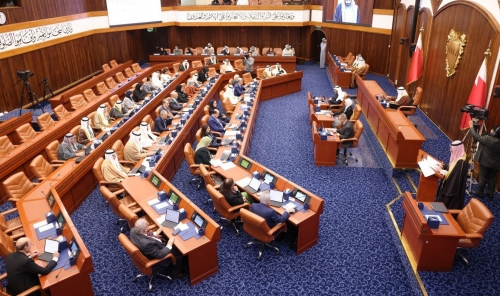Shura Rejects Tax on Expats’ Money Transfers Again
TDT | Manama
Email : editor@newsofbahrain.com
A plan to tax outbound remittances would have driven expats to send money outside the banking system, encouraged money laundering, and harmed Bahrain’s reputation in global finance, the Shura Council ruled on Sunday, throwing out the proposal.
The legislation merged two MP-backed proposals into a single bill aimed at imposing a charge on all financial transfers abroad, with a particular focus on cash remittances sent by expatriates. Shura’s Financial and Economic Affairs Committee reviewed the proposal and warned it could cause more problems than it solves.
‘The idea was to control money flows and boost revenue, but instead it would drive people to send funds through informal means, beyond the reach of oversight,’ said committee rapporteur Sadiq Eid Al Rahma. ‘That opens the door to a black market, greater reliance on cryptocurrency, and jeopardises Bahrain’s position as a banking hub.’
The committee also questioned how the proposed 2 per cent tax had been calculated. ‘The law is supposed to fix a problem, but there isn’t one to begin with,’ said Shura member Ali Al Aradi. ‘Why 2 per cent? What’s that based on? Were any serious studies done? And there’s no mention of penalties. If such a tax were imposed worldwide, Bahrainis abroad could find themselves paying similar charges in return. Practically speaking, it doesn’t add up.’
The committee warned the bill was at odds with multiple agreements Bahrain has signed, including tax treaties and investment protection pacts. Al Rahma said it lacked any provision ensuring compliance with these agreements, putting Bahrain at risk of breaching its legal obligations.
Shura member Abdulla Al Nuaimi took it a step further, calling the idea unworkable and warning that it could lead to loopholes and under-the-table dealings. ‘It interferes with people managing their own money. Instead of this, we should be looking at the cost of hiring workers—that’s where laws could actually make a difference.’
The council also questioned how authorities would distinguish remittances subject to tax from regular payments made via credit cards, digital wallets, and mobile apps. ‘People use these for all sorts of things—paying off a credit card, buying goods online, even sending funds between family members,’ said Al Rahma. ‘How would the law separate remittances from those?’
After debate, the Shura Council upheld its earlier rejection of the bill.
Related Posts

